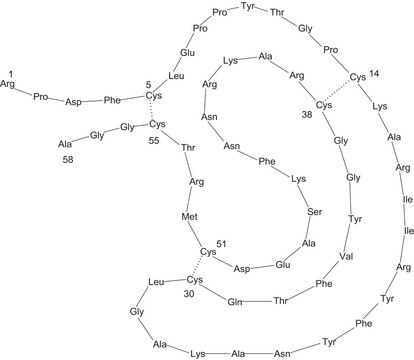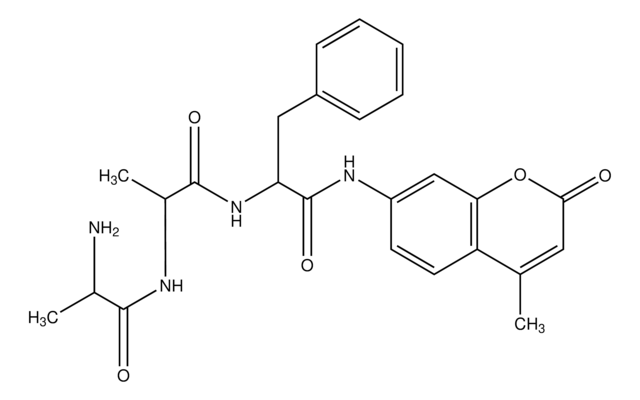D1556
OptiPrep™ Density Gradient Medium
used for cell and subcellular organelle isolation
Synonym(s):
Iodixanol solution
About This Item
Recommended Products
sterility
sterile
form
liquid
density
1.319-1.321 g/mL
application(s)
hematology
histology
SMILES string
CC(=O)N(CC(O)CN(C(C)=O)c1c(I)c(C(=O)NCC(O)CO)c(I)c(C(=O)NCC(O)CO)c1I)c2c(I)c(C(=O)NCC(O)CO)c(I)c(C(=O)NCC(O)CO)c2I
InChI
1S/C35H44I6N6O15/c1-13(52)46(30-26(38)20(32(59)42-3-15(54)9-48)24(36)21(27(30)39)33(60)43-4-16(55)10-49)7-19(58)8-47(14(2)53)31-28(40)22(34(61)44-5-17(56)11-50)25(37)23(29(31)41)35(62)45-6-18(57)12-51/h15-19,48-51,54-58H,3-12H2,1-2H3,(H,42,59)(H,43,60)(H,44,61)(H,45,62)
InChI key
NBQNWMBBSKPBAY-UHFFFAOYSA-N
General description
Application
- to investigate the efficiency of single-cell encapsulation.
- the gradient-based isolation of senescent cancer cells.
- isolation of non-enveloped virion isolation from bronchoalveolar lavage.
- isolation of lipoproteins and macromolecules
- purification of virions
- purification of neuron cells
Features and Benefits
- It is biologically inert and does not interfere with assays for marker enzymes.
- It is non-ionic, non-toxic, and has low osmotic pressure.
- It forms spontaneous gradients that are stabler and easier to prepare than sucrose.
Other Notes
Legal Information
Storage Class Code
10 - Combustible liquids
WGK
WGK 1
Flash Point(F)
Not applicable
Flash Point(C)
Not applicable
Certificates of Analysis (COA)
Search for Certificates of Analysis (COA) by entering the products Lot/Batch Number. Lot and Batch Numbers can be found on a product’s label following the words ‘Lot’ or ‘Batch’.
Already Own This Product?
Find documentation for the products that you have recently purchased in the Document Library.
Customers Also Viewed
Articles
Centrifugation enables the separation of particles by sedimentation. Learn how to separate particles using a centrifuge and how to use Stokes' law to calculate the velocity of sedimentation.
Our team of scientists has experience in all areas of research including Life Science, Material Science, Chemical Synthesis, Chromatography, Analytical and many others.
Contact Technical Service









